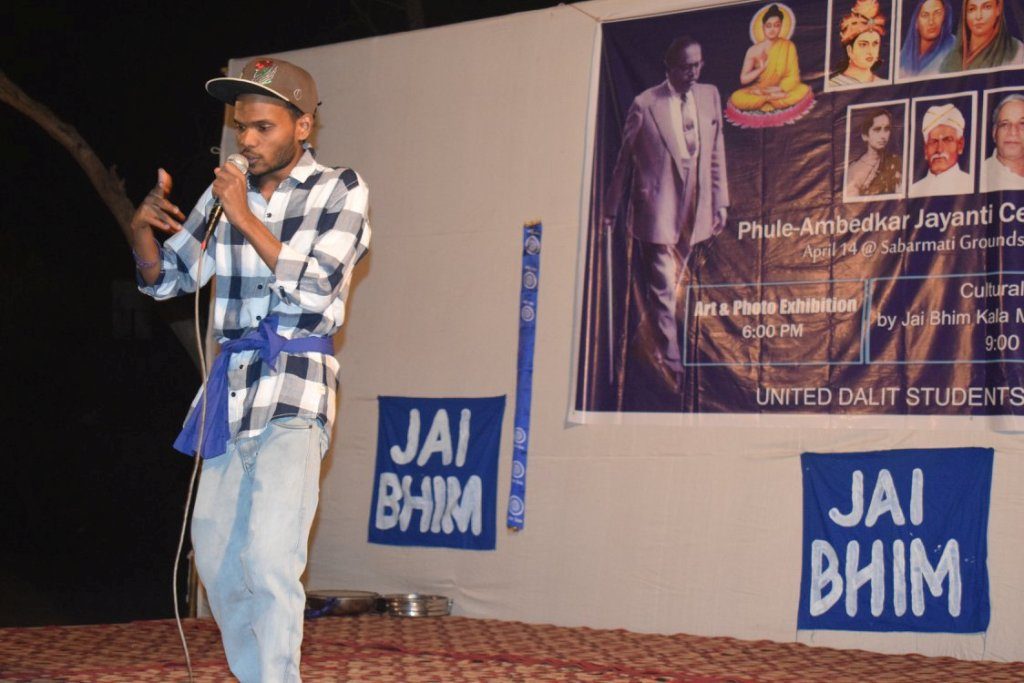Bhubaneswar: Caste-based discriminations and violence, Dalit oppressions and ill treatment are daily headlines. The mention of the very phrase ‘Dalit atrocity’ brings forth images of rural India plagued by caste-based discrimination.
Recent instances like Rohith Vemula’s suicide and past years’ incidents such as 1997 gunning down of 58 Dalits at Laxmanpur bathe in retaliation of the Bara massacre in Gaya wherein 37 upper castes Bhumihars were killed are some of the cases that send shivers down the spines.
If estimates are to be believed, a crime is committed against a Dalit every 18 minutes. Experts opine that the problem is not with the laws, but with lack of political will at local and national levels to implement these laws. In 2006, the official conviction rate for Dalit atrocity cases was mere 5.3%.
Turn to America, where African-Americans devised a way to fight against racism. Developed in the 1980s, hip hop music became a musical weapon and called for action and social activism against the social evil. In last so many years, many eminent rappers such as Tupac Shakur, Eminem, ‘Ice Cube’ and Dr Dre had kick-started a movement against oppression, especially racism that inspired many others to take the path of rap music.
Taking a cue from this, Samir Rishu Mohanty a rapper from Odisha who goes by the moniker Big Deal, has rapped about the racism which he faced due to his Indo-Japanese parents.
Likewise, Sumeet Samos, a 24 year old Dalit boy Koraput district, who just completed his Masters in Latin American Literature (Spanish) from Jawaharlal Nehru University, is rapping about his experiences and anecdotes of being a Dalit in modern India through his songs.
His first rap video ‘Ladai Seekh Le’ was released Thursday wherein he elucidated the story of casteism and urged the listeners to develop powerful anti-caste narratives.
The Hindi rap, with subtitles in English, showcases the deep problems faced by the low caste people in very harsh manner and also discusses some of the brutal incidents of caste violence and oppression alike.
An excerpt from the song:
Padhe Ho jo Kitaabon Mein Hum Har Roz Usko Jeete,
Asaliyat Mein Gyan kya hai Humse Ye Seekh Le (‘What you are reading in books, we live that every day. What is actual knowledge, learn it from us’) paints a grim picture of the caste-based discrimination that ails the Indian society.
The rabble-rouser Samos does not mind to resort to radical solutions when he sings ‘Maang-Maang Ke Thak Gaye, Ab Sab Kuchh Lenge Chheen Ke,’ (‘We are tired by begging now we will snatch everything which is supposed to be ours’).
Talking to Orissa POST, Samos said he was drawn into rapping when he moved to JNU after his Standard XII exams. “After an extensive study of several literature and iconic black hip-hop artists, I developed interest towards rap music,” he added. Samos believes rap is the most effective weapon to fight casteism and to develop a powerful anti-caste narrative.
“Rap music has always been a medium of subversion and resistance. Also because of my background, I have been always labelled as a criminal since my childhood,” said Samos, who hails from a hamlet called Tentulipadar in the Koraput district of the state.
Samos revealed that in JNU too he had to face discrimination at the beginning.
Narrating his ordeal, Samos added, “At first, the upper caste students used to hurl abuses and bully me.”
“A generation ago, students like me would have been intimidated by the hostile conditions that ensured that higher education in India remains a caste minefield,” he rued.
“Presently, armed with a phalanx of fresh blood and rising Ambedkarite discourse in universities, many Dalit students strike a confident note”, said Sumeet, a member of Birsa Ambedkar Phule Student Association (BAPSA-JNU).
He recently visited Paris for an international seminar where he rapped his views on caste system.
Arindam Ganguly,OP
